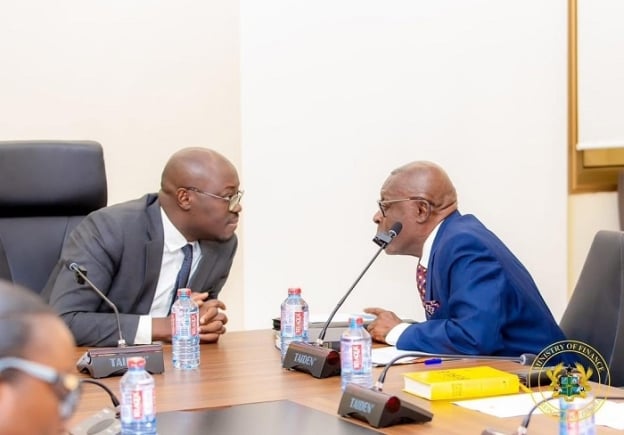Ghana’s nascent Goldbod gold purchase program has injected a much-needed $1.1 billion into the nation’s foreign exchange reserves within its first full month of operation, marking a significant step towards harnessing the country’s mineral wealth for national development. Finance Minister Dr. Cassiel Ato Forson hailed this achievement as a testament to the potential of properly structured resource management, emphasizing the role of the Minerals Income Investment Fund (MIIF) in maximizing the benefits derived from Ghana’s mineral resources. This substantial influx of foreign exchange, generated from the export of over 11 tonnes of gold, underscores the program’s early success and its potential for long-term economic growth. The Minister’s remarks also highlighted the government’s commitment to leveraging these resources responsibly and transparently, setting the stage for a new era in mineral resource governance.
The Minister’s pronouncements, delivered during the swearing-in ceremony of the new MIIF board, were not without criticism of the Fund’s past performance. Dr. Forson pointedly addressed previous instances of mismanagement and misuse of public resources within MIIF, urging the newly appointed board to steer the Fund towards a path of accountability and responsible resource allocation. This call for reform reflects the government’s determination to ensure that the proceeds from Ghana’s mineral wealth are utilized effectively for the benefit of the nation, rather than being squandered through mismanagement. The Minister’s warning also carried an implied promise: a positive shift in MIIF’s operations, characterized by fiscal discipline and strategic investments, could lead to a reconsideration of the government’s current stance towards the Fund, potentially paving the way for greater autonomy and resources.
The government’s vision for MIIF extends beyond simply managing the revenue generated from the Goldbod program. Dr. Forson emphasized the Fund’s crucial role in securing equity participation in mining operations, thereby increasing local ownership and control over this vital sector. This strategy aims to shift the balance of power within the mining industry, ensuring that Ghanaians benefit not only from the financial proceeds of mining but also from the decision-making processes that shape the industry’s future. Furthermore, by fostering greater local participation, the government seeks to create jobs, build local expertise, and promote sustainable development within mining communities.
The government’s plans for the Goldbod program are ambitious, envisioning its expansion in partnership with MIIF. This expansion is expected to further bolster Ghana’s foreign exchange reserves, providing a stable foundation for economic growth and development. By channeling the revenues generated from the program through MIIF, the government aims to ensure that these funds are strategically invested in projects that benefit the broader population, supporting infrastructure development, education, healthcare, and other crucial social programs. This strategic alignment between Goldbod and MIIF is designed to maximize the positive impact of Ghana’s mineral wealth on the lives of its citizens.
Beyond the Goldbod program, the government is also taking decisive action to combat the persistent problem of mineral smuggling, which has long deprived the country of valuable revenue. Recognizing the significant economic losses associated with illicit mineral trade, Dr. Forson announced new measures aimed at curtailing smuggling activities, strengthening border controls, and improving monitoring systems. These efforts underscore the government’s commitment to ensuring that Ghana receives the full benefit of its natural resources, preventing these resources from being siphoned off through illegal channels. By cracking down on smuggling, the government aims to create a level playing field for legitimate mining operations and to secure the revenues that are rightfully due to the state.
The newly appointed Chairman of the MIIF board, Richard Kwame Asante, has pledged to rebuild public trust in the Fund and to align its operations with Ghana’s broader development goals. This commitment reflects a recognition of the importance of transparency, accountability, and effective governance in managing the nation’s mineral wealth. Mr. Asante’s leadership will be crucial in steering MIIF towards a new era of responsible resource management, ensuring that the Fund plays a pivotal role in driving sustainable economic development and improving the lives of all Ghanaians. By working in close collaboration with the government, the new MIIF board is poised to unlock the full potential of Ghana’s mineral resources and to transform the sector into a powerful engine of national prosperity.


